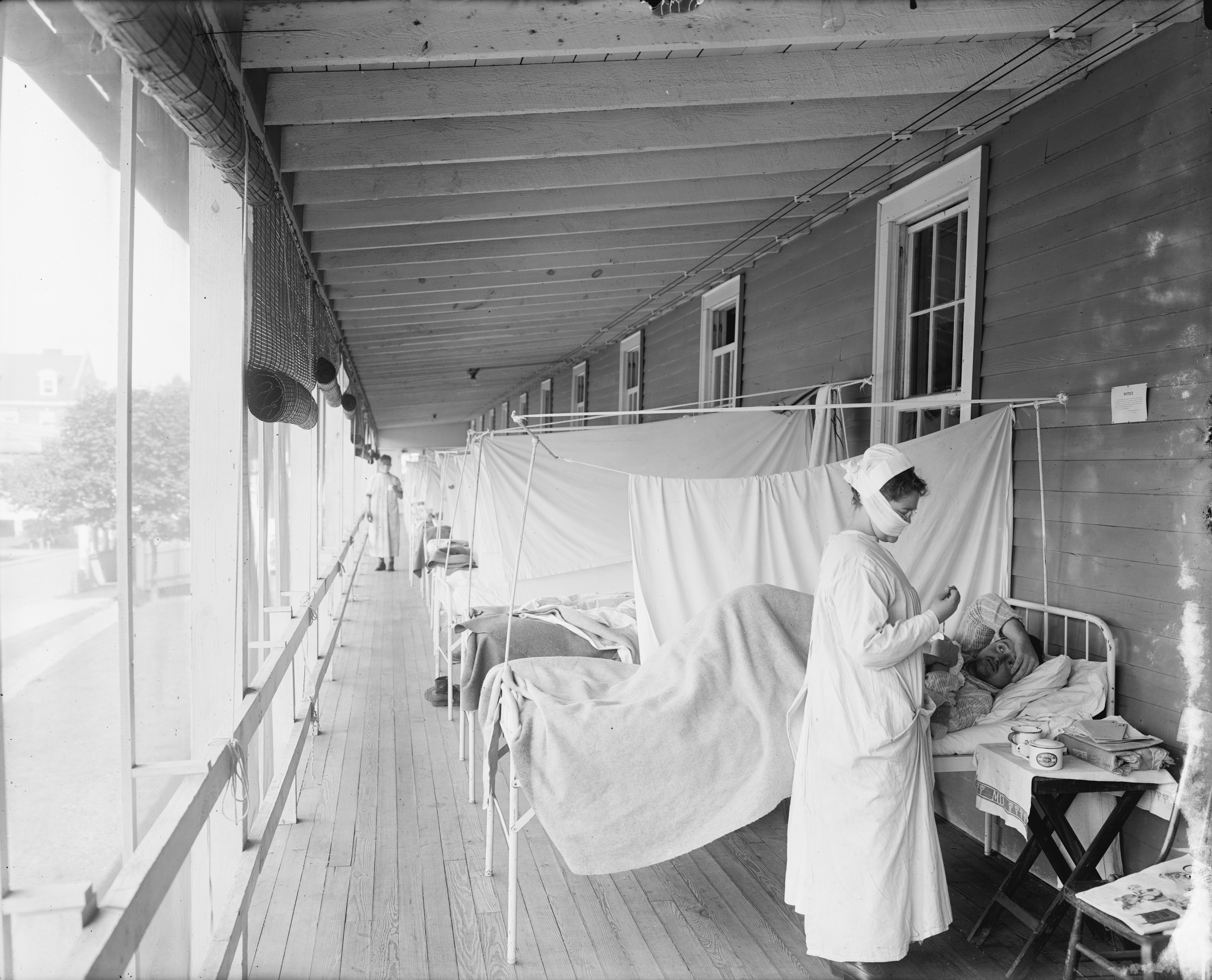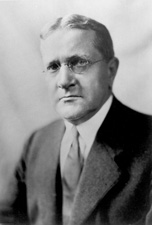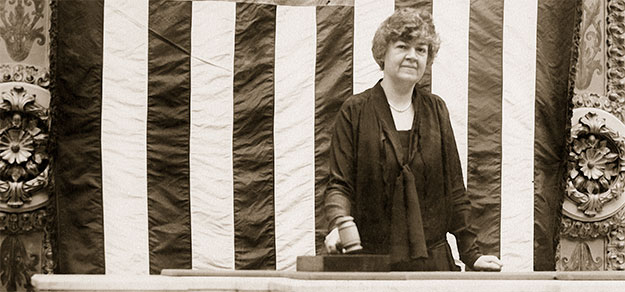|
Richard N. Elliott
Richard Nash Elliott (April 25, 1873 – March 21, 1948) was an American lawyer and politician who served seven terms as a U.S. Representative from Indiana from 1917 to 1931. Early life and career Born near Connersville, Indiana, Elliott attended the common schools. He taught school for three years. He studied law. He was admitted to the bar in 1896. He was a lawyer in private practice. County attorney of Fayette County, Indiana from 1897 to 1906. Political career He served as member of the Indiana House of Representatives from 1905 to 1909. City attorney of Connersville, 1905-1909. He served as delegate to the Republican National Convention, 1916. He served as chair of the Republican State convention in 1930. Congress Elliott was elected as a Republican to the Sixty-fifth Congress to fill the vacancy caused by the death of United States Representative Daniel W. Comstock. He was reelected to the Sixty-sixth and to the five succeeding Congresses (June 29, 1917 – Marc ... [...More Info...] [...Related Items...] OR: [Wikipedia] [Google] [Baidu] |
Indiana
Indiana () is a U.S. state in the Midwestern United States. It is the 38th-largest by area and the 17th-most populous of the 50 States. Its capital and largest city is Indianapolis. Indiana was admitted to the United States as the 19th state on December 11, 1816. It is bordered by Lake Michigan to the northwest, Michigan to the north, Ohio to the east, the Ohio River and Kentucky to the south and southeast, and the Wabash River and Illinois to the west. Various indigenous peoples inhabited what would become Indiana for thousands of years, some of whom the U.S. government expelled between 1800 and 1836. Indiana received its name because the state was largely possessed by native tribes even after it was granted statehood. Since then, settlement patterns in Indiana have reflected regional cultural segmentation present in the Eastern United States; the state's northernmost tier was settled primarily by people from New England and New York, Central Indiana by migrants fro ... [...More Info...] [...Related Items...] OR: [Wikipedia] [Google] [Baidu] |
65th United States Congress
The 65th United States Congress was a meeting of the legislative branch of the United States federal government, composed of the United States Senate and the United States House of Representatives. It met in Washington, DC from March 4, 1917, to March 4, 1919, during the fifth and sixth years of Woodrow Wilson's presidency. The apportionment of seats in this House of Representatives was based on the Thirteenth Census of the United States in 1910. The Senate maintained a Democratic majority. In the House, the Republicans had actually won a plurality, but as the Progressives and Socialist Representative Meyer London caucused with the Democrats, this gave them the operational majority of the nearly evenly divided chamber, thus giving the Democrats full control of Congress, and along with President Wilson maintaining an overall federal government trifecta. Major events * March 4, 1917: Jeannette Rankin of Montana became the first woman member of the United States House of Rep ... [...More Info...] [...Related Items...] OR: [Wikipedia] [Google] [Baidu] |
People From Connersville, Indiana
A person ( : people) is a being that has certain capacities or attributes such as reason, morality, consciousness or self-consciousness, and being a part of a culturally established form of social relations such as kinship, ownership of property, or legal responsibility. The defining features of personhood and, consequently, what makes a person count as a person, differ widely among cultures and contexts. In addition to the question of personhood, of what makes a being count as a person to begin with, there are further questions about personal identity and self: both about what makes any particular person that particular person instead of another, and about what makes a person at one time the same person as they were or will be at another time despite any intervening changes. The plural form "people" is often used to refer to an entire nation or ethnic group (as in "a people"), and this was the original meaning of the word; it subsequently acquired its use as a plural form of per ... [...More Info...] [...Related Items...] OR: [Wikipedia] [Google] [Baidu] |
1948 Deaths
Events January * January 1 ** The General Agreement on Tariffs and Trade (GATT) is inaugurated. ** The Constitution of New Jersey (later subject to amendment) goes into effect. ** The railways of Britain are nationalized, to form British Railways. * January 4 – Burma gains its independence from the United Kingdom, becoming an independent republic, named the ''Union of Burma'', with Sao Shwe Thaik as its first President, and U Nu its first Prime Minister. * January 5 ** Warner Brothers shows the first color newsreel (''Tournament of Roses Parade'' and the '' Rose Bowl Game''). ** The first Kinsey Report, ''Sexual Behavior in the Human Male'', is published in the United States. * January 7 – Mantell UFO incident: Kentucky Air National Guard pilot Thomas Mantell crashes while in pursuit of an unidentified flying object. * January 12 – Mahatma Gandhi begins his fast-unto-death in Delhi, to stop communal violence during the Partition of India. * January 1 ... [...More Info...] [...Related Items...] OR: [Wikipedia] [Google] [Baidu] |
1873 Births
Events January–March * January 1 ** Japan adopts the Gregorian calendar. ** The California Penal Code goes into effect. * January 17 – American Indian Wars: Modoc War: First Battle of the Stronghold – Modoc Indians defeat the United States Army. * February 11 – The Spanish Cortes deposes King Amadeus I, and proclaims the First Spanish Republic. * February 12 ** Emilio Castelar, the former foreign minister, becomes prime minister of the new Spanish Republic. ** The Coinage Act of 1873 in the United States is signed into law by President Ulysses S. Grant; coming into effect on April 1, it ends bimetallism in the U.S., and places the country on the gold standard. * February 20 ** The University of California opens its first medical school in San Francisco. ** British naval officer John Moresby discovers the site of Port Moresby, and claims the land for Britain. * March 3 – Censorship: The United States Congress enacts the Comstock Law, making it ... [...More Info...] [...Related Items...] OR: [Wikipedia] [Google] [Baidu] |
William Larrabee (Indiana)
William Henry Larrabee (February 21, 1870 – November 16, 1960) was an American physician and politician who served six terms as a U.S. Representative from Indiana from 1931 to 1943. Early life Larrabee was born on a farm near Crawfordsville, Indiana. He attended the public schools, Indiana Central Normal School at Danville, and Indiana State Normal School at Terre Haute. He taught in public schools at New Palestine, from 1889 until 1895, then attended Indiana School of Medicine at Indianapolis until 1898, and commenced the practice of medicine and surgery in New Palestine. Political career Larrabee served as the secretary of Hancock County Board of Health in 1917–18, and on the city council of New Palestine, 1916–20. In 1930 he was elected to Congress as a Democrat, serving until January 3, 1943. In Congress, he served as chairman of the Committee on the Census (Seventy-fourth and Seventy-fifth Congresses) and the Committee on Education (Seventy-fifth through Seventy-sev ... [...More Info...] [...Related Items...] OR: [Wikipedia] [Google] [Baidu] |
72nd United States Congress
The 72nd United States Congress was a meeting of the legislative branch of the United States federal government, consisting of the United States Senate and the United States House of Representatives. It met in Washington, D.C. from March 4, 1931, to March 4, 1933, during the last two years of Herbert Hoover's presidency. The apportionment of seats in this House of Representatives was based on the thirteenth decennial census of the United States in 1910. The Senate had a Republican majority. The House started with a very slim Republican majority, but by the time it first met in December 1931, the Democrats had gained a majority through special elections. Major events * Ongoing: Great Depression * January 12, 1932: Hattie Wyatt Caraway of Arkansas became the first woman elected to the United States Senate. (Rebecca Latimer Felton of Georgia had been appointed to fill a vacancy in 1922; the 87-year-old Felton served one day as a senator.) Caraway had won a special election t ... [...More Info...] [...Related Items...] OR: [Wikipedia] [Google] [Baidu] |
71st United States Congress
The 71st United States Congress was a meeting of the legislature of the United States federal government, consisting of the United States Senate and the United States House of Representatives. It met in Washington, D.C. from March 4, 1929, to March 4, 1931, during the first two years of Herbert Hoover's presidency. The apportionment of seats in the House of Representatives was based on the thirteenth decennial census of the United States in 1910. Both the House and Senate remained under Republican control, with increased majorities in each chamber. And with Herbert Hoover being sworn in as President on March 4, 1929, the Republicans maintained an overall federal government trifecta. The 71st Congress also featured the most special elections of any Congress with 27 in all. Major events * March 4, 1929: Herbert C. Hoover became President of the United States * October 24, 1929 – October 29, 1929: Wall Street Crash of 1929: Three multi-digit percentage drops wipe out more t ... [...More Info...] [...Related Items...] OR: [Wikipedia] [Google] [Baidu] |
69th United States Congress
The 69th United States Congress was a meeting of the legislative branch of the United States federal government, consisting of the United States Senate and the United States House of Representatives. It met in Washington, D.C. from March 4, 1925, to March 4, 1927, during the third and fourth years of Calvin Coolidge's presidency. The apportionment of seats in the House of Representatives was based on the thirteenth decennial census of the United States in 1910. The Republicans made modest gains in maintaining their majority in both chambers, and with the election of President Calvin Coolidge to his own term in office, the Republicans maintained an overall federal government trifecta. Major events A special session of the Senate was called by President Coolidge on February 14, 1925. * Impeachment of Judge George W. English — On April 1, 1926, the House of Representatives impeached Judge George W. English of the United States District Court for the Eastern District of Ill ... [...More Info...] [...Related Items...] OR: [Wikipedia] [Google] [Baidu] |
68th United States Congress
The 68th United States Congress was a meeting of the legislative branch of the United States federal government, consisting of the United States Senate and the United States House of Representatives. It met in Washington, D.C. from March 4, 1923, to March 4, 1925, during the last months of Warren G. Harding's presidency, and the first years of the administration of his successor, Calvin Coolidge. The apportionment of seats in the House of Representatives was based on the thirteenth decennial census of the United States in 1910. Both chambers maintained a Republican majority - albeit greatly reduced from the previous Congress and with losing supermajority status in the House - and along with President Harding, the Republicans maintained an overall federal government trifecta. Major events *August 2, 1923 – President Warren Harding died. Vice President Calvin Coolidge became President of the United States Major legislation * April 26, 1924: Seed and Feed Loan Act * May 19, ... [...More Info...] [...Related Items...] OR: [Wikipedia] [Google] [Baidu] |
67th United States Congress
The 67th United States Congress was a meeting of the legislative branch of the United States federal government, consisting of the United States Senate and the United States House of Representatives. It met in Washington, D.C. from March 4, 1921, to March 4, 1923, during the first two years of Warren Harding's presidency. The apportionment of seats in the House of Representatives was based on the Thirteenth Census of the United States in 1910. The Republicans increased their majorities in both chambers - gaining supermajority status in the House - and with Warren G. Harding being sworn in a U.S. President, this gave the Republicans an overall federal government trifecta for the first time since the 61st Congress in 1909. This was the first Congress to feature a woman Senator appointed in the United States Senate, Rebecca L. Felton of Georgia, who held in office for one day. This is the most recent time Republicans had a 2/3rds supermajority in the House of Representatives. ... [...More Info...] [...Related Items...] OR: [Wikipedia] [Google] [Baidu] |
66th United States Congress
The 66th United States Congress was a meeting of the legislative branch of the United States federal government, comprising the United States Senate and the United States House of Representatives. It met in Washington, DC from March 4, 1919, to March 4, 1921, during the last two years of Woodrow Wilson's presidency. The apportionment of seats in the House of Representatives was based on the Thirteenth Census of the United States in 1910. The Republicans won majorities in both the House and the Senate, thus taking control of both chambers. This is the last congress to have no female members of congress in the House of Representatives, and thus the last time there was an all-male congress (several subsequent congresses, up to the 96th congress, would have periods with no women in the Senate but several in the House). Major legislation * June 30, 1919: Navy Appropriations Act of 1919 * June 30, 1919: Hastings Amendment * July 11, 1919: Anti-Lobbying Act of 1919 * July 11, 1919: A ... [...More Info...] [...Related Items...] OR: [Wikipedia] [Google] [Baidu] |


_1938.jpg)





.jpg)